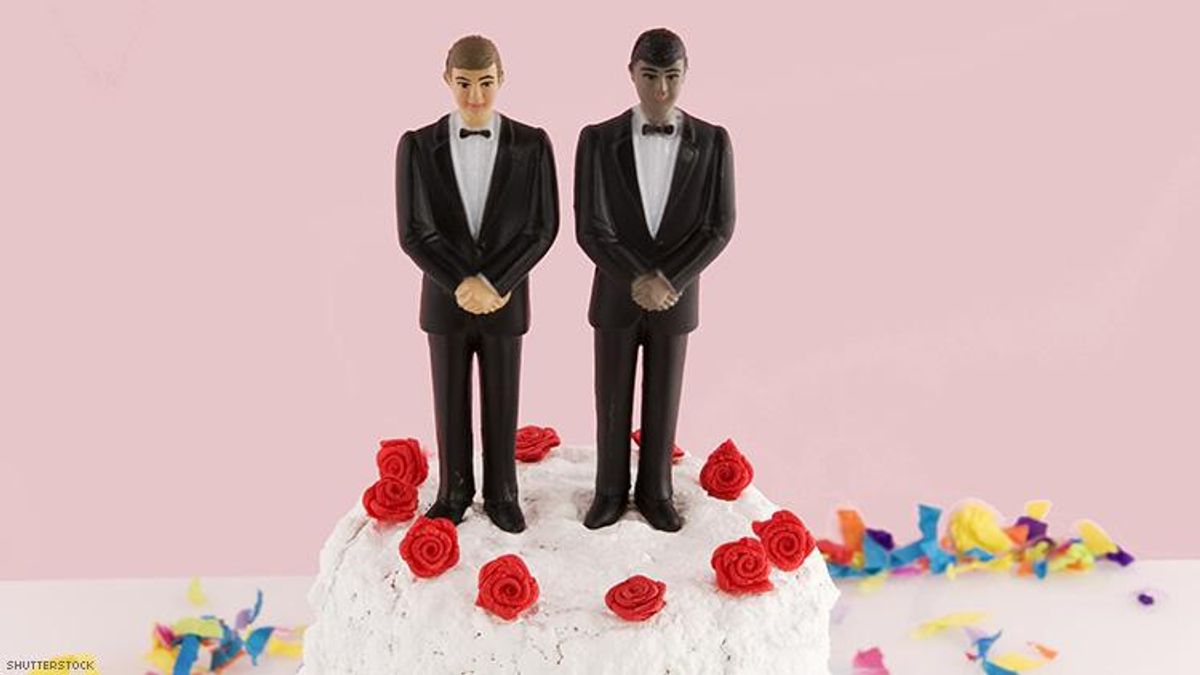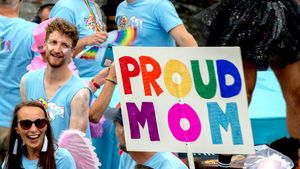In a major setback for LGBTQ+ rights, Arizona's highest court ruled in favor of a business that refused to make wedding invitations for same-sex couples.
Joanna Duka and Breanna Koski, owners of the Phoenix-based company Brush & Nib, filed a lawsuit alleging that the Arizona city's nondiscrimination law violated their religious freedom and right to free speech. Duka and Koski, who are Christians, said the city code "prevented them from exercising artistic and religious freedom" by requiring their hand-painting and lettering business to serve same-sex couples and make wedding invitations for them.
On Monday, the Arizona Supreme Court agreed with Duka and Koski, ruling 4-3 in the business' favor.
In a majority opinion, Justice Andrew Gould argued that free speech isn't limited to private conversations but that it protects "the right of every American to express their beliefs in public." He added, "This includes the right to create and sell words, paintings, and art that express a person's sincere religious beliefs."
This ruling, which overturns two previous lower court rulings, is one of the few challenges to an LGBTQ+ nondiscrimination ordinance in Arizona.
The two women were represented by the right-wing legal outfit Alliance Defending Freedom. The Washington, D.C. based-firm also represented Masterpiece Cakeshop plaintiff Jack Phillips in his successful petition to the U.S. Supreme Court. Last year, the bench ruled 7-2 that the Colorado Civil Rights Commission did not give proper consideration to his faith beliefs when fining Phillips for refusing to bake a wedding cake for a same-sex couple.
The federal bench, however, stopped short of ruling that people of faith have a mandate to discriminate against members of the LGBTQ+ community. It effectively punted the issue to be decided in a future court case.
The city of Phoenix clarified in a statement that the Arizona Supreme Court ruling was similarly narrow. "Anti-discrimination ordinance is still a legal, valid law and remains in effect," a representative for its municipal government claimed. "It currently affirms that everyone should be treated fairly and equally regardless of sexual orientation, race, religion, sex, gender, or disability."
"This ruling does not apply to any other business in Phoenix," it added. "The city of Phoenix has had an anti-discrimination ordinance since 1964 to protect all residents and believes that everyone should be treated equally."
The city's statement is in line with what the decision from the Arizona Supreme Court actually states. Like the U.S. Supreme Court ruling from one year ago, justices said that they "do not recognize a blanket exemption from the ordinance," adding that the ruling did not decide "the issue of whether creation of other wedding products may be exempt."
This may be a win for Duka and Koski, but at least for now, it's not the sweeping license to discriminate conservatives wanted either.
The issue is likely to eventually be decided by the federal Supreme Court.
RELATED | Trump to Supreme Court: It's OK to Fire Workers For Being Gay


























































































